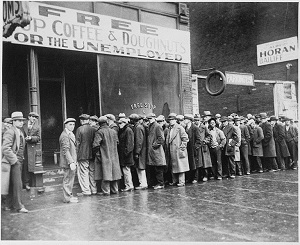
“Where an employee claims that the work aggravated her medical condition, she must prove that she gave the employer an opportunity to accommodate her so as to protect her employment.”
A February Appeals Court decision answered the question of whether a person can get unemployment benefits when he or she quits a job without offering the employer a chance to accommodate a medical condition that he or she feels is aggravated by working there. The court said “no,” because the employer must be given an opportunity to accommodate.
Claimant S.M. appealed from a final decision of the New Jersey Department Of Labor Board of Review (Board), which denied her unemployment benefits because she left her employer “voluntarily and without good cause attributable to” her job. She claimed that the decision was wrong, because she showed that the job aggravated her mental health and that she was forced to resign because “her working environment subjected her to ‘intentional harassment based upon her spiritual beliefs.”
S.M. worked for an insurance company in a clerical position from 2005 to 2014. She said that one or two co-workers teased her about her spiritual beliefs during this period, but she failed to report them for fear that she would be forced to work in the company’s common area (she had her own office). Also, she said that she suffered from depression and, after mentioning it to the human resources director, began seeking treatment.
In July 2014, S.M. severely injured her foot, requiring surgery and months of homebound living. Her employer offered to send her job equipment to her home to allow her to continue work. She rejected this offer.
During her months at home, S.M. realized that her mental health greatly improved. After consulting her therapist, she resigned in late August. Her resignation email outlined that she was generally unhappy with her employment and coworkers because she wasn’t treated with respect; that no one had contacted her about her well-being post foot injury; that she had suffered through three major depressions at the job; and finally that she didn’t feel “challenged by what amounted to “basically tedious data entry.”
In December of that year, after her disability benefits ended, S.M. filed for unemployment. Her claim was rejected because it was found that she left her job voluntarily because she wasn’t happy with the working conditions. It also noted that there was “no evidence that the conditions of her employment were so severe as to cause her to leave available work to become unemployed.”
Her first-stage appeal was basically an opinion of her therapist that she indeed did suffer from depression and panic attacks, and that the job contributed to these. She also supplied a letter from her psychiatrist to the same effect. The Appeal Tribunal conducted a telephonic hearing where she and her ex-employer’s human resource director testified. Relying on her doctors’ letters and her testimony, the denial of benefits was reversed.
The employer appealed because it felt that S.M. did not provide it with any opportunity to accommodate or address her issues with the job. Her resignation email only addressed her general dissatisfaction, and did not reference the therapist’s suggestion that she quit. The Board agreed, relying heavily on her email, that S.M. voluntarily quit her job because “the workplace was not appreciative of her work and unsupportive during her recovery from depression and surgery.” It also noted that there was little to no communication with human resources about any of these issues. She was not only denied benefits, but also had to refund $11,308 paid to her in benefits.
The Appeals Court first wrote that a court’s review of administrative decisions is very limited to actions that are “arbitrary, capricious, or unreasonable.” In order to get unemployment benefits, a person must show that he or she left for good cause attributable to such work and not voluntarily. A person seeking benefits need only show that the job “aggravated” the mental or physical condition by competent medical evidence. Then, the law requires an employee do everything necessary to protect the position by providing an opportunity to the employer to accommodate. Finally, the employer must be notified that the condition was the cause of the resignation.
The Court found that even if everything S.M. testified to or claimed was taken as accurate, her claim fails because the “opportunity to accommodate” was not given to the former employer. A person navigating medical conditions that he or she believes are worsened by a job should seek legal counsel to ensure that his/her employment/unemployment rights are preserved to the greatest extent possible. Evan Xavier Bakhet is a J.D. Candidate at Rutgers School of Law-Newark with a scheduled graduation date in 2017. He collaborated with me on this blog.

